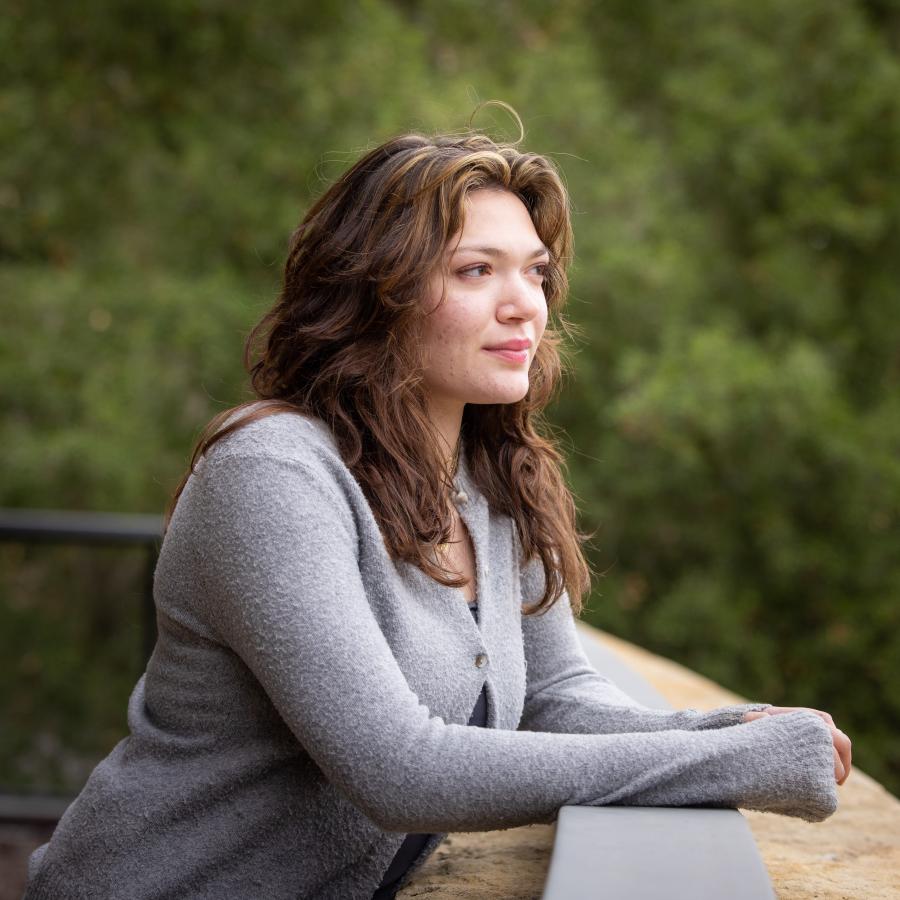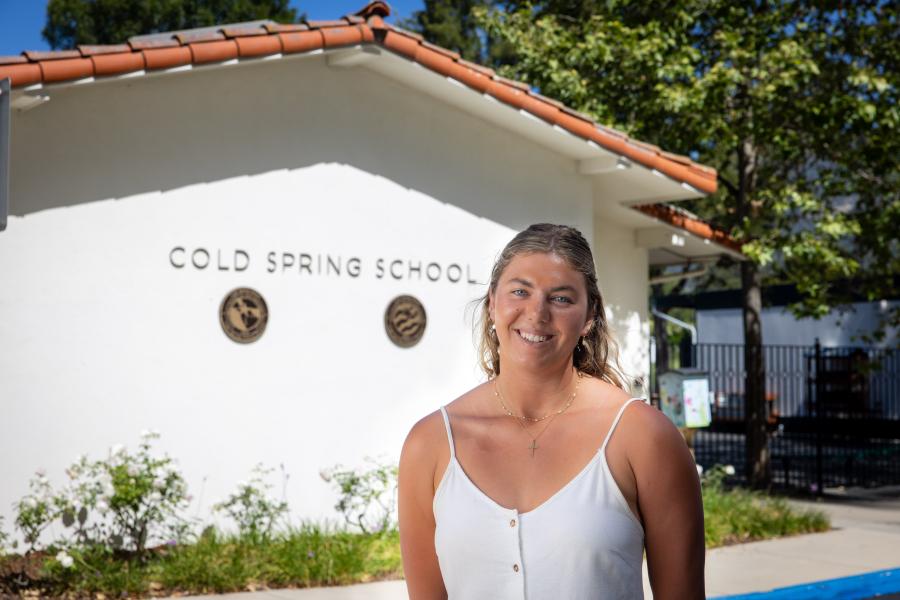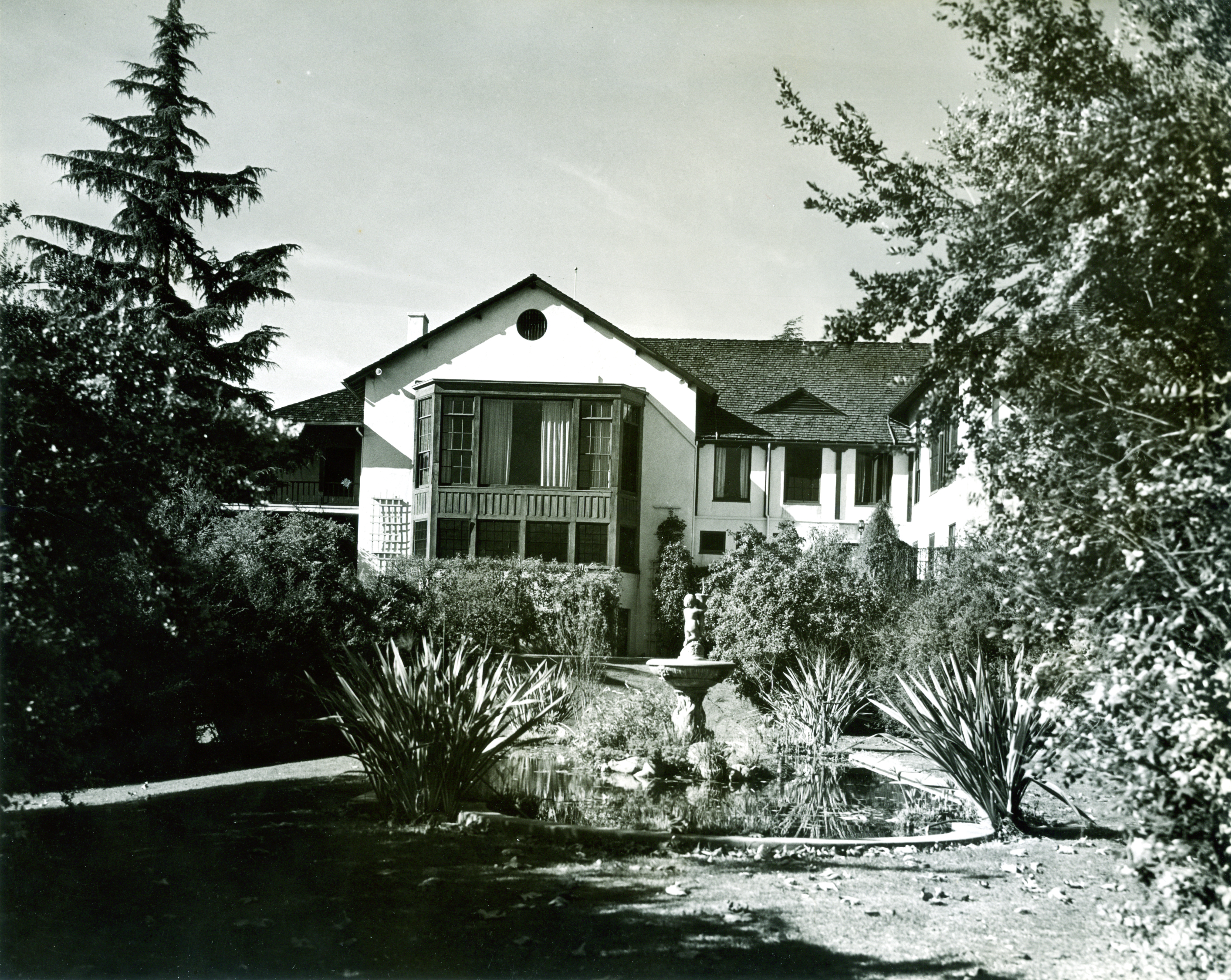NEWS
Out of the Ashes of the Eaton Fire
Ashley Siebels ’26 dreams at least once a week about the only home she’s ever known. “I’m in the house, but I know it’s not there,” she says. “It’s a weird in-between place.” Just days after she returned to campus in January, the Eaton Fire engulfed her west Altadena neighborhood in Southern California, leaving it a desolate, unrecognizable landscape.
Not only did her family lose their home but most of their possessions, including two cars. The fierce winds drove them away before many people evacuated. However, her parents and sister packed little as they never expected the house to burn. They fled to stay with Ashley’s uncle and his family and have since moved into a rental 40 miles from Altadena to a less expensive place.
Ashley remains in a “weird, in-between place,” living in a vastly different reality on campus than her displaced parents and siblings experience. “It’s heartbreaking,” she says. “My family has faced a lot of hard things. My brother has autism and lives in a group home, and my mom has been chronically ill most of my life. I have a horrible feeling they didn’t deserve this. “But my parents have been amazing. They’ve received lots of support from people who showed up for them. That’s been beautiful. My sister and I have struggled more; moving meant she had to leave her job. But she’s looking for a new one and returning to school to become a speech and language pathologist.
“I’ve had to deal with the loss of our home and focus on school at the same time, and I’ve not missed any classes. It’s been frustrating that few people understand my reality, but my professors and the staff in the athletic office where I work have been sensitive and sweet.”
She’ll spend the summer with her family, unable to return to her usual summer job at an Altadena coffee shop. But first, she’ll participate in the Redemptive Entrepreneurship Mayterm in London, which she eagerly anticipates.

“I’ve learned a lot from this experience. When something life-changing happens to someone I know, I’ll reach out to them. I now understand how important such support is.”
An economics and business major and art minor, Ashley thinks about law school and working in the corporate world or perhaps starting her own business. “My major will be helpful whatever I end up doing,” she says.
Ashley went to visit the lot where she lived, thick with ash. “I had to see it for myself,” she says. “I’ve learned a lot from this experience. When something life-changing happens to someone I know, I’ll reach out to them. I now understand how important such support is.”
In his dorm room, Asher Hammer ’27 frantically tracked the progress of the fast-moving Eaton Fire in its early hours. A theater arts major and Pasadena native, he found a tragically reliable source of information: Instagram posts by high school friends whose homes had burned. “It was the stuff of nightmares,” he says. “I estimate that a fourth of my graduating class lost their homes.”
Feeling powerless, Asher wanted to do something. “I hated being stuck in Santa Barbara, and I was itching for a way to help out,” he says. With his family actively involved in the Pasadena Unified School District, he soon discovered the activities of the Pasadena Education Foundation (PEF), which supports the district. The organization was assisting the 70 district employees who lost homes and providing mental health support, legal aid, food and water to anyone who needed it.
“In the first days of the response, PEF was leading the charge with aid on the ground,” he says. “They already had a fundraising platform, and I spent some time trying to push out a QR code that led to the fundraising site. I reached out to local churches and made presentations in chapel. Thankfully, most churches already had outreach plans in place and were funneling funds accordingly.”

In the immediate aftermath of the Eaton Fire, families with kids fled to Santa Barbara to find housing and escape the smoke and chaos. On short notice, Cold Spring School agreed to host 120 of these children for a two-day camp January 13 and 14. Superintendent/Principal Amy Alzina ’97 reached out to friends for assistance, including homeschool teacher Allison Bell, whose daughter, Leighton ’26, attends Westmont. Her mother asked Leighton to find seven volunteers to help out. The music major and psychology minor appealed to Campus Pastor Scott Lisea to send an email requesting volunteers. Responses poured in, and Leighton quickly lined up seven people.
Leighton shared her experience with the Horizon, explaining how the school grouped kids into classes in their art center and their STEM program, giving them a sense of community, structure and normalcy with other kids who were also suffering. The Cold Spring students learned how to serve and care for those who were having a hard time. “It was a gift to both sides,” she says. “The kids brought so much excitement to the school — they had so much joy and energy. I loved seeing them do cartwheels.”
The overwhelming response from so many Westmont students encouraged Leighton. “We have a campus full of people who want to give back in any way possible,” she says. “That’s Westmont. Meeting the kids, I realized how difficult it is to experience a natural disaster and lose so many everyday things. For example, one girl with matted hair explained that she couldn’t fix it because the fire had burned her brush.”
A clarinetist, Leighton plans to study music therapy in graduate school and work with children in long-term treatment. “Studies show that children with cancer also suffer from depression and anxiety, and music helps the chemo work,” she says.
The horrific Eaton Fire destroyed schools, places of worship, museums, restaurants and businesses as well, including all the buildings at the Altadena Golf Course, a property Westmont once owned. In 1944, Ruth Kerr discovered the then-defunct golf course with 115 acres and a large club house and bought it for $200,000. The Westmont trustees planned to move the college from its cramped, six-acre campus in Los Angeles to a site with existing buildings where it could grow.
But Los Angeles County had appropriated $150,000 to purchase the land for a park, and local residents were raising an additional $25,000 to meet the $175,000 cost. Altadenans expected a park.
“We have a campus full of people who want to give back in any way possible,” she says. “That’s Westmont.”
When Westmont applied for a zoning change to operate in a residential area, widespread opposition from the neighborhood thwarted their plans. One opponent wrote to the Pasadena Star News, “The people who live in Altadena moved there and built their homes there because of its atmosphere of being a beautiful, semi-suburban, exclusively residential community. Any action which jeopardizes this atmosphere affects the welfare and investments of several thousand people, and should be scrutinized most searchingly.”
Eighty years ago in May, after two overwhelming votes against the zoning change by the County Regional Planning Commission, the Los Angeles Board of Supervisors denied the college’s appeals. This final decision stunned Kerr and the trustees.
The Altadena Golf Course Clubhouse in 1945. Photo courtesy of the Westmont Archives.
She recalled, “Our board members began asking one another, ‘Did we run ahead of the Lord and not ascertain God’s will before we made this purchase?’ Then remembering how much prayer had gone up to the Throne of Grace, we knew that was not so. We had prayed so earnestly about this location, and now it seemed as if every door was closed. But God had marvelous plans underway unbeknownst to us.”
The college sold the property for more than twice the cost, and it once again became a golf course. Soon after, Kerr drove onto the Dwight Murphy estate in Montecito and knew at once that God had provided a new home for Westmont.

This is a story from the Spring 2025 Westmont Magazine